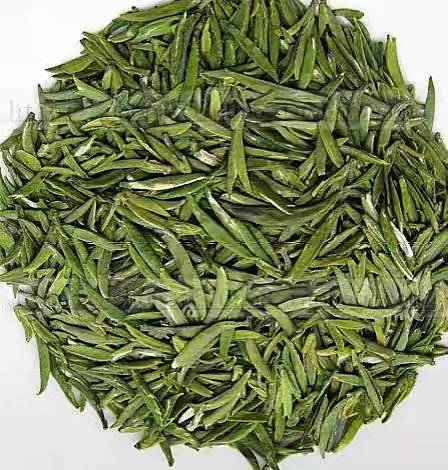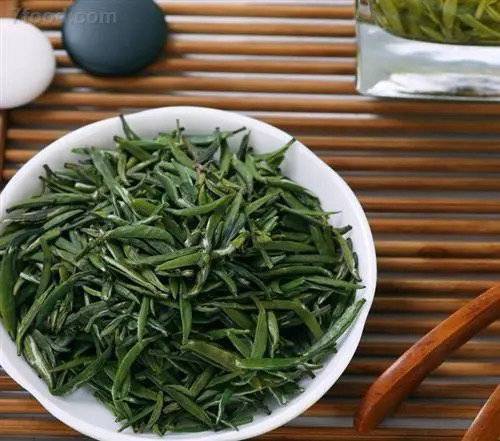Maofeng pesticides exceeded the standard 11 times Professor Li Pinwu: tea industry planting pesticide illegal use phenomenon
Author:Cover news Time:2022.06.22
On May 30, the Sichuan Provincial Market Supervision Bureau issued the "Announcement on the Unqualified Food Sample Inspection of 11 Classification of Food" showed that "the" Jingling Jasmine Handmade Mao Feng (Tea) '"produced by Jianyang Jingling Tea Industry Co., Ltd. The worm has exceeded the standard 11 times. Previously, Chengdu Yayangchun Tea Co., Ltd., Sichuan Dujiangyan Qingcheng Tea Co., Ltd., Ya'an Mingshan District Tea Factory, Emeishan Xuezhu Tea Industry Co., Ltd., Emeishan Xianzhi Bamboo Tip Tea Industry Tea leaves produced by limited liability companies, Leibo County Junshan Tea Factory, Emeishan Xianzhi Tea Co., Ltd. have been detected by the existence of agricultural residues, which has aroused consumers 'discussion and attention to tea farmers' disability.

It is understood that the detected insecticides are Kibaiwa and Yanminosiosulfin, which are a common pesticide in pesticides. Tea farmers use related pesticides illegally before collecting tea.
So is Kobawei's phenomenon that must be used for tea planting? Is the problem of tea pesticide residues strict? Drinking tea is really equivalent to drinking pesticides? With these issues, the cover journalist interviewed the head of the tea science major, department of the Sichuan Agricultural University, and the chief expert of Ya'an Tea Academician Expert Station, Professor Li Pinwu. He said: Tea is widely loved because of its natural and healthy attributes, and even many people must be a must -have every day. Tea drinkers naturally want to drink tea green without pollution, but there is no pesticide or other harmful substances at all, which is unrealistic. Tea friends need to be used scientifically to look at pesticides. The amount of pesticide residues in tea does not exceed the standards, which is safe for consumers.
Is it necessary to use pesticides for tea planting?
Professor Li has long been engaged in tea processing and quality formation, tea garden ecological environmental safety research and teaching work. He talked about tea trees usually grow in a warm and humid environment, and it is more prone to pests and insect pests, and the use of pesticides in the process of large -scale planting. Since tea uses pesticides, there will be more or less residues, but there are two different standards for pesticide residues and excessive pesticide residues. At present, some low-toxic pesticides are allowed to be used by the country, and the "largest pesticide residue of food safety national standard foods" (GB 2763-2016) stipulates the limited requirements of 48 pesticides in tea. These The limited value is obtained based on the risk of science. As long as the pesticide residue in the tea does not exceed the standard, it is safe for consumers.
At the same time, with the development of society, more and more high residues or high -toxic pesticides have been eliminated and instead replaced by some high -efficiency and low -toxic pesticides. The two pesticides of Kobawei and Yanminosiosulfin sulfur who have exceeded the standard tea in the unqualified tea in this time. Vegetables, fruit trees, Chinese herbal medicinal materials. In the "Gab 2763-2021) of" Food Safety National Standard Foods "(GB 2763-2021), Kobaiwei (residue: Kobei and 3-hydroxyl Budweiser, said in Kobei) in tea leaves) in tea leaves) The maximum residual limit is 0.02mg/kg. The maximum residual limit value of amphenhypel phosphorus is 0.05mg/kg.

There are pesticides in the residue of tea. Is it really equivalent to drinking pesticides when drinking tea?
Daily consumers will worry about pesticide residues in tea drinking. Therefore, many consumers will reduce the intake of agricultural residues through tea washing. Is it scientific for such tea drinking?
In this regard, Professor Li emphasized, "It cannot be said that the dose is toxic! Not only tea, the same is true of pesticide residues in other agricultural products." Professor Li said that most of the use of tea is used on the tea. The material is slightly soluble in water or insoluble in water, and pesticide residues are mainly in tea residue. Tea friends drink tea soup, which is relatively safe. On the other hand, from the perspective of quantitative effects, according to the calculation of 4-5 cups of tea at 4-5 cups of tea in the a day, the total amount of farmers and residues contained in the tea drink is extremely small, and there is no substantial impact on human health; Tea washing does not effectively clean the agricultural residues; of course, food safety issues such as farmers and residues should attract attention from people in various social aspects, and consciously prevent their potential risks in nutrition and health.
Cover Journalist Mother Qi
- END -
Fanghua has no regrets and unprepared hearts 丨 TV series "Daughter of Dashan" CCTV premiered in the majority of party members and cadres in Baise City caused a strong response
On the evening of June 26, the winner of the National Outstanding Communist Party Member and Seventh Medal, Modeling of the Times Huang Wenxiu's advanced deeds, directed by Lei Xianhe, and starr
Epidemic prevention guide 丨 railway passenger chapter

Drawing: Fang XuetingEdit: Xiao Zhi